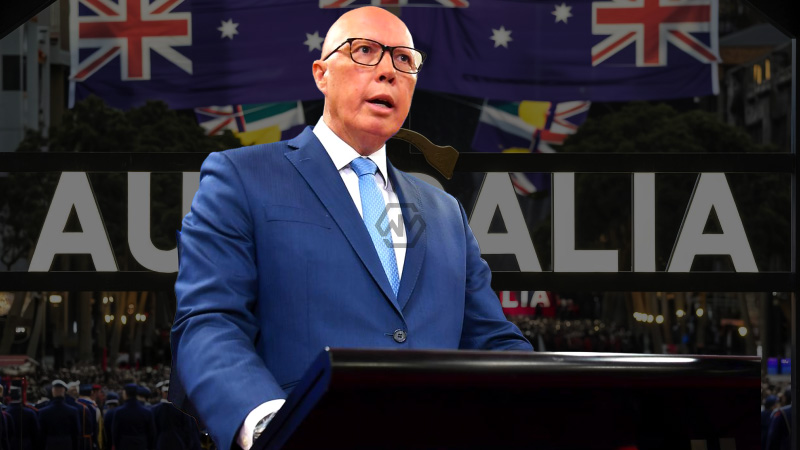- Peter Dutton promises to raise defence spending to 3% of GDP within 10 years.
- The Coalition pledges $21 billion more than Labor for defence over five years.
- Dutton faces criticism over a lack of specific policy details and funding plans.
Peter Dutton, Australia’s Opposition Leader, has made a bold pledge to increase defence spending to 3% of GDP over the next decade. The Coalition aims to raise defence expenditure to 2.5% within five years. They are committing an additional $21 billion compared to Labor’s defence budget.
Dutton has faced criticism for the lack of specific details regarding how the additional funds would be allocated. While the Coalition’s defence policy includes enhancing capabilities such as drones and guided weapons, the opposition has yet to outline a clear procurement strategy.
Dutton’s Defence Policy Under Fire: Rising Military Budget and Strategic Concerns
Peter Dutton’s proposal to increase Australia’s defence spending to 3% of GDP within ten years has been met with mixed reactions. The Coalition promises a substantial increase, aiming for 2.5% within five years. This could cost an additional $21 billion compared to the current defence budget. Dutton’s pledge underscores the importance of strong military capabilities amid regional tensions. This is particularly relevant with China’s growing influence.
While the defence policy has been framed as necessary to maintain peace and security, the Coalition has not provided detailed information on how the additional funds will be spent. Dutton mentioned broad areas like drones and guided weapons. However, he has refrained from announcing specific procurement plans. This lack of clarity has drawn criticism from political opponents, who argue that mere numbers are not enough without clear strategies.
The Coalition’s focus on national security contrasts with the Albanese government’s ongoing commitment to the AUKUS defence project. This project aims to acquire nuclear-powered submarines. Despite their differences, both parties agree on the need for increased defence spending, though the methods and long-term priorities vary. Dutton has promised to reverse tax cuts to help fund the policy, but this remains a point of contention in the campaign.
Dutton’s proposal, though ambitious, is being tested by the evolving global security landscape. As the May 3 election approaches, defence spending will remain a critical issue. Both major parties are competing to prove their commitment to national security. With early voting already underway, the final push for voters’ support will likely hinge on their confidence in these defence pledges.
As the election nears, Peter Dutton’s defence plan adds another layer of complexity to the national debate. Questions about its feasibility and execution are still looming.
“You don’t achieve peace through weakness,” — Peter Dutton, emphasizing the need for strong defense capabilities.



